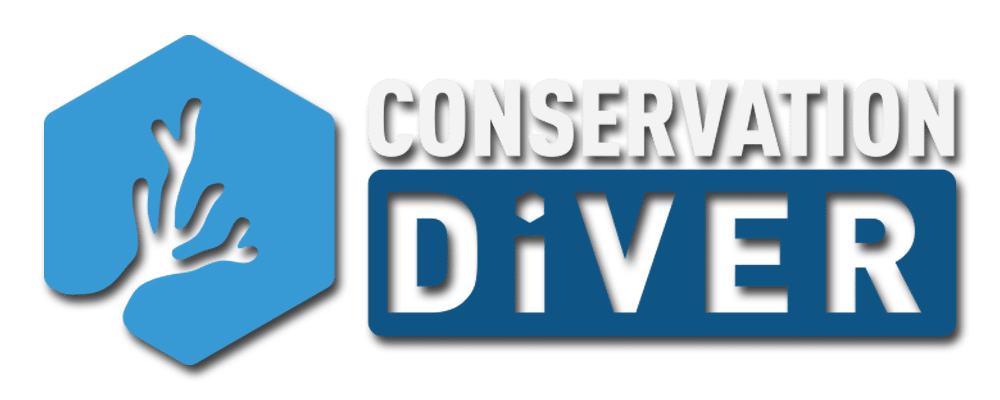FAQs
Discover how to embark on your conservation journey with our brief FAQ guide. Whether you’re aiming to learn at our global training centers, understand the value of our certifications, or find out about course costs and schedules, we’ve got you covered. Learn the distinct focus of our programs on practical skills over mere certification, and how you can contribute to marine conservation efforts. Dive into the prerequisites, the path to becoming a certified instructor, and the support we offer to budding marine conservationists. For any additional questions, we’re just an email away. Join us in making a significant impact on preserving marine ecosystems.
Conservation Diver courses are taught by any of our active and certified instructors. The courses can be taught by the instructors anywhere they are currently residing; however, the best place to get trained is at one of our training centers located in various regions around the globe.
Our conservation certifications are proof that you have completed the theory and practical skill development pertaining to the courses we offer. These certifications also allow you to travel to other Conservation Diver training centers and participate on ongoing research and restoration projects without having to pay for additional training.
Each of our training centers have their own schedules and course start dates. You can contact them directly for more information.
Training centers are independently owned and due to local variation in both diving cost and course requirements, each sets their own prices, so please contact them for more details.
The goal of our programs is primarily to provide you with knowledge and develop your practical skills in various topics regarding marine conservation and research. It is the course material that is most valuable, rather than the certification cards. In order to become a valuable member of the marine conservation community you must first dedicate your time to learning and understanding the ecosystems you are working in. Our system differs from the standard dive certifications that customers may be familiar with, in which you are basically just purchasing cards that require very little real training. For example, the Underwater Photography course offered by many leading dive organizations is a very popular card; however, to teach that course dive instructors do not need any formal training in underwater photography, nor do they have to prove competence in underwater photography before teaching the course. This is the same with most specialty courses, and you are paying more for the card than the training. In our programs, we focus on the training – instructors generally have a university degree in the field, and have undergone several months of work and internship to prove that they are highly skilled in all areas of our programs, demonstrating their ability to teach them effectively. For those looking to collect certification cards, our programs may not be the best fit. However, those more concerned about the actual training will find our programs to be very valuable in jump-starting their career or interests in marine conservation.
Our certifications prove that you have completed the minimum standard requirements for knowledge and practical skill development. They do not allow you to teach the courses. If you wish to teach the courses, you must undertake an internship and/or complete the requirements to become a Conservation Diver-certified instructor.
Being a dive professional you have equipped yourself with the skills to control, teach and facilitate SCUBA diving activities. For scientific diving, SCUBA is just the medium in which we do our work. Although it is a minimum requirement for our Conservation Diver Trainers to be dive professionals in order to ensure diver safety, the methodologies, protocols and knowledge that students are required to partake in scientific diving needs completely new training. As a dive instructor you will most likely have the advantage of being able to master in-water activities quicker than others, but the course content requires much dedication and study, especially if you don’t have any academic background in related areas. Our programs do not focus on building the CVs/resumes of SCUBA instructors but instead focus on adding value to existing marine conservation centers or facilitating dedicated individuals to start their own training centers or marine conservation programs.
Our goal is to be adaptive to the needs of our members and trainers. This can translate to various means of support depending upon individual needs. After training, support may include such services as providing data or equipment, assisting in student or grant acquisition, or helping with the publication of scientific papers, networking, fundraising, and much more. Please contact us with your specific needs and we will be happy to see how we can help.
Yes, because we are working closely with a delicate ecosystem, self awareness and buoyancy control underwater are key. A prerequisite to all of our courses is that you are certified as an advanced-level diver before beginning or have on open water certificate and buoyancy sign off by a professional diver. However, learning to dive is something we can readily get you involved in. Most of our trainers are also dive instructors and work at dive centers offering beginner diving courses. Furthermore, all of our training centers are operated out of dive schools. If you are already interested in science and conservation, then learning to dive is the easy part.
If you have any further questions or queries, please email us.
